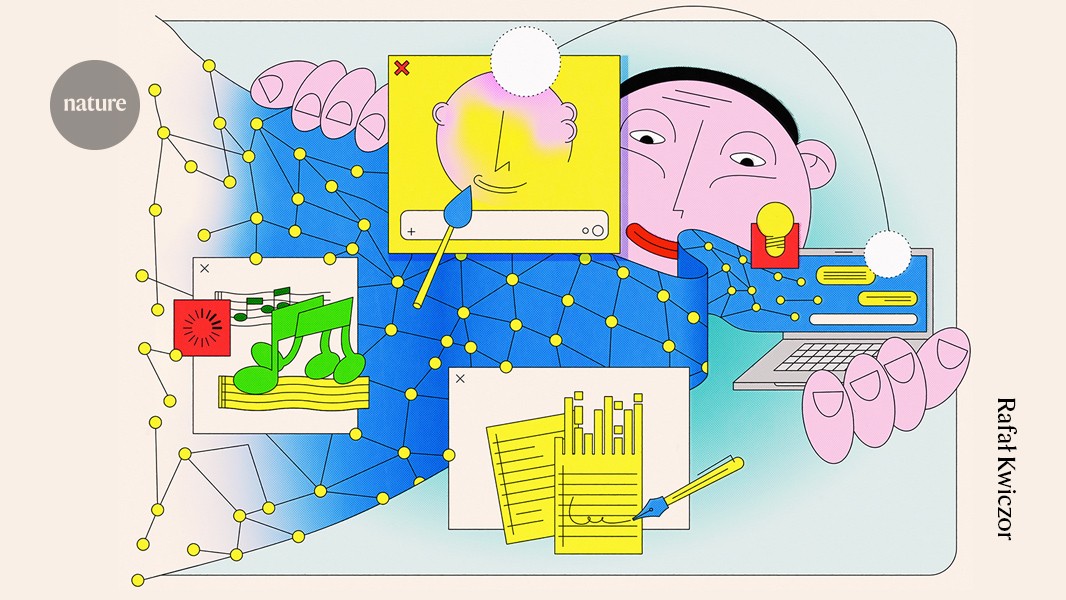
"Pianita number 17 is a short, haunting piece for the piano. Set in the D minor key, its poignant chords and softly ascending arpeggios convey a sense of lost love, yet with enough novelty - dissonant notes and an eerie timing shift - to lift the piece out of cliché. What searing life experiences, then, did the composer pour into this work?"
"None, as it turns out. Because this music was produced by an artificial-intelligence model, trained on thousands of hours of YouTube videos. For decades, psychologists have thought of creativity as a key trait that would set us apart from machines, even as they surpassed us in intelligence and skill. But now, a wave of generative AI models, which create new content based on learning from huge data sets, is throwing shade on this idea."
"These models exploded onto the scene in November 2022 when the California AI firm OpenAI released ChatGPT, a hugely popular AI chatbot. Powered by the large language model (LLM) GPT-3.5, ChatGPT was able to produce convincing text and images in response to simple prompts. Models that were even more impressive quickly followed. From poetry and video to ideas and music, AI-generated content now rivals many human-made works."
Pianita number 17 is a D minor piano piece that evokes lost love with poignant chords, softly ascending arpeggios, dissonant notes and an eerie timing shift. The piece was produced by an artificial-intelligence model trained on thousands of hours of YouTube videos. Generative AI models rose to prominence in November 2022 with ChatGPT, powered by GPT-3.5, which produced convincing text and images from simple prompts. Subsequent models generate poetry, video, ideas and music that rival human-made works. The emergence of these systems challenges traditional scientific definitions of creativity and prompts vigorous debate among researchers.
Read at Nature
Unable to calculate read time
Collection
[
|
...
]